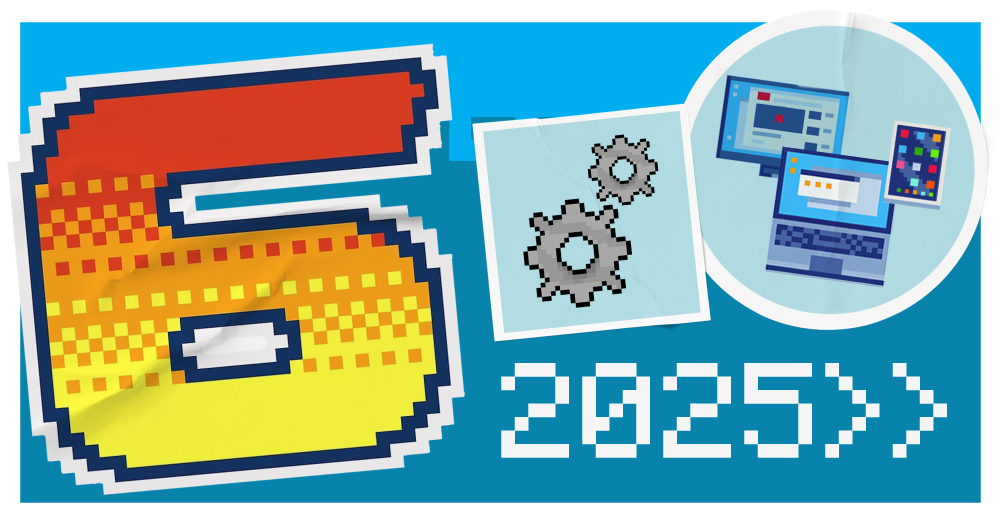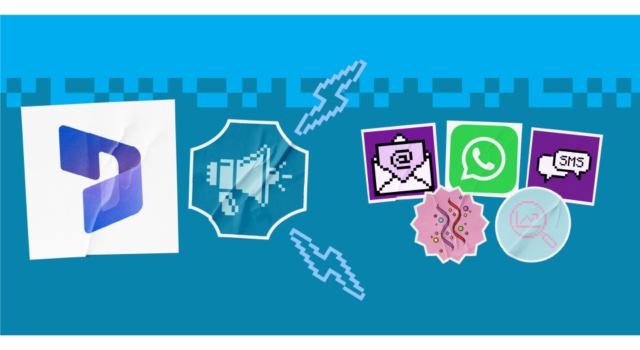As we approach the end of 2024, it’s that time of year where our minds naturally turn to lessons learned and goals for January.
There is no denying that 2024 was one full of challenges for business, with cost rises, ongoing skills shortages, increased competition and more. On top of this, there has been an explosion of new technology, faster than most organisation has been able to keep up with.
The result now is a landscape where many businesses find themselves facing inefficiencies, without a clear idea of the solutions available to ease them and how to implement them effectively.
Our experts spend every day working with organisations to uncovering issues within their operations and applying transformative technologies to deliver long-term value. They also work with Microsoft to identify the latest trends and technologies for a future view of what businesses can expect.
So, we’ve gathered their knowledgeable insights about what businesses should be doing to improve performance and efficiencies into 2025.
Prepare for AI_
Saima Khan, Head of Presales
AI has been around for some time now, but many companies still aren’t fully prepared for it. Businesses need to investigate how to use AI efficiently and to boost productivity, especially as lazy usage of AI can cause more problems.
Operational adoption and readiness are so important. You should aim to have an AI adoption policy, centred around an AI tool that can be used safely, so employees understand what’s acceptable. Many don’t realise that company private data can be compromised, and this can lead to severe consequences for the business.
People will use AI regardless of whether you tell them to or not, so empower them to do it safely. A good idea is to have an AI working group to uncover use cases and learn how to maximise usage.
You should also have a wider operational adoption plan to prevent people becoming overly reliant on AI rather than using their own skills. This plan should promote using AI tools in a way that complements and enhances human expertise, whilst ensuring people still have opportunity to make informed, well thought out decisions. View AI as a tool that enhances productivity and allows your teams to focus on the most important matters.
Review and re-engineer processes_
Duncan Kerr, Presales Solution Architect
Too many businesses are still wasting time on manual, repetitive processes. If I had to give just one tip to any organisation, it would be to review processes again and again. Your aim should be to find those areas of repetitive or manual effort. Think anything involving paper, spreadsheets and the likes.
Then, look at how you can automate using tools like Power Platform or Copilot. At the very least, structuring these processes better can save time and give you a platform for transformation. If done effectively, you can quickly begin improved cost efficiency and easing resource issues within your operations.
Streamline deployment_
Will Winter, Professional Services Director
As technological innovation continues to explode, especially in the post-AI world, it is crucial businesses have a process to quickly deploy new solutions. Merging the codebases for Continuous Engineering (CE) and Business Central can help to streamline this.
By bringing developers and your operational teams together, they can collaborate to find and build systems that better address challenges, are better embedded and easier to maintain.
A good Application Lifecycle Management model will also prove key here, enabling you to consistently maintain, test and improve. The result will be faster delivery, scalability, innovation and lower costs.
Get ready for autonomous AI_
Tristan Shortland, Chief Innovation Officer
Just as businesses were exploring AI language models, the game is about to step up again with autonomous AI. Only last month, Microsoft announced Copilot Agents, which can perform tasks autonomously based on your prompts. This can offer significant productivity benefits, saving you precious time across repetitive or admin-heavy processes.
If you’re looking to implement autonomous AI, as with any AI, it’s crucial to prepare your data. Most crucially, you should centralise this in one location, which can be connected to the AI you use. Data should also be regularly cleaned to keep it up to date.
On top of this, you’ll want to find those instances of mundane or repetitive tasks, as these are where you can best apply AI-powered automation.
Drive system connectivity_
Alan Gonsalves, Business Applications Sales Specialist
With increasing automation and AI usage, system connectivity has never been more crucial. A joined-up technical platform is a must for any company. This will support the effective strategic decision-making that most companies aspire to and is a key foundation for any effective data strategy.
By finding and implementing systems that offer connectivity, and ensuring they are integrated across your business, you can improve data visibility, prepare for AI implementation and get better process flow. This drives productivity, cost management and better decision-making, which will boost performance into 2025.
Speak to your teams to uncover AI use cases_
Declan Knight, Presales Solutions Architect
AI tools aren’t going anywhere into 2025 and they’ll continue to dominate business conversation. To echo what many of my colleagues have said, preparing for AI is crucial now.
The best way to do this is to have conversations across your business and understand what they do that could be automated. For example, ask field service schedulers or sales people what they do and what drives the biggest frustration. Commonly, these will be areas of mundane, repetitive tasks.
By finding these areas, you can explore how you can apply AI to get tangible results.
Drive business efficiency and technology usage into 2025_
If your goals for 2025 centre around working smarter, rather than harder, it’s crucial to find ways to be more efficient as a business. In today’s world, that means employing the technological tools available to you, identifying use cases for the likes of AI and implementing innovation sensibly.
There is a suite of Microsoft tools out there to support you in this journey too, which our experts can guide you through and help you find the right fit. Book your call today for tailored advice that drives your goals.




